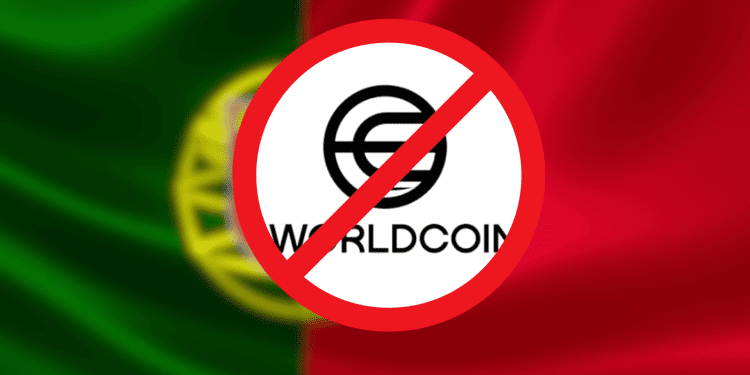- Portugal’s National Data Protection Commission banned Worldcoin from collecting biometric data for 3 months over privacy concerns like lack of age verification and inability to delete data.
- Worldcoin denies wrongdoing, claiming it doesn’t allow minors and is addressing reports, though Spain also banned Worldcoin over identical issues.
- Worldcoin faces growing regulatory scrutiny over biometric data collection practices, with bans in Portugal and Spain potentially just the beginning unless it can satisfy regulators.
Portugal’s National Data Protection Commission (CNPD) recently announced a temporary ban on Worldcoin collecting biometric data in the country. This decision comes amid regulatory concerns over the crypto project’s data collection practices.
Details of the Ban
The CNPD imposed a 90-day ban on Worldcoin collecting iris, eye, and facial biometrics. The commission cited several reasons for the decision:
- Worldcoin allegedly has no age verification, enabling minors to register without parental consent.
- Users weren’t given enough information and can’t delete data or revoke consent.
- Biometric data and minors have special protections under GDPR.
- Other potential GDPR violations.
CNPD president Paula Meira Lourenço called the ban “indispensable and justified” to protect rights.
Worldcoin Denies Wrongdoing
According to Reuters, Worldcoin denies any wrongdoing and claims it doesn’t allow minors to register. Worldcoin’s data protection officer Jannick Preiwisch said the project is “fully compliant with all laws and regulations” where it operates.
Preiwisch said Worldcoin was unaware of CNPD’s concerns. He emphasized Worldcoin’s zero tolerance policy for minor registration. The project is also addressing the reports.
Worldcoin recently introduced a Personal Custody model to give users more control over their data. This change coincided with open-sourcing the Orb software.
Spain Also Banned Worldcoin
Spain banned Worldcoin data collection for three months on March 6 over identical concerns. Regulators in other countries have also voiced worries, with Kenya calling the collection “espionage.”
Conclusion
The Worldcoin project faces growing regulatory scrutiny over its biometric data gathering practices. It remains to be seen whether the bans in Portugal and Spain are just the beginning of wider restrictions. For now, Worldcoin maintains it is following laws and addressing issues through measures like Personal Custody. The coming months will test if that is enough to satisfy skeptical regulators.














